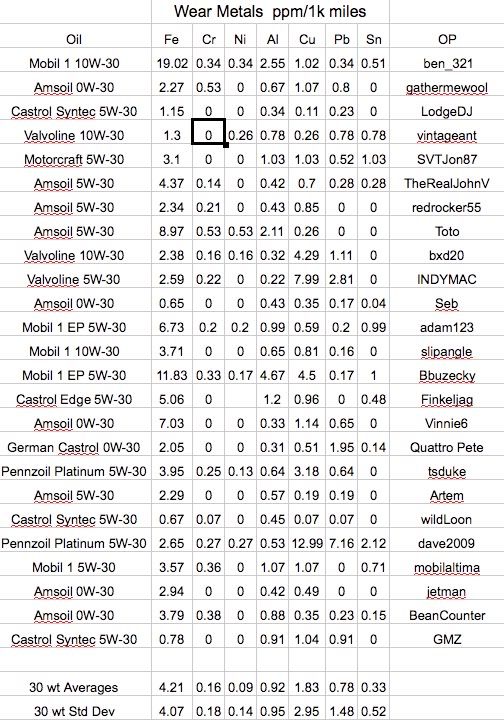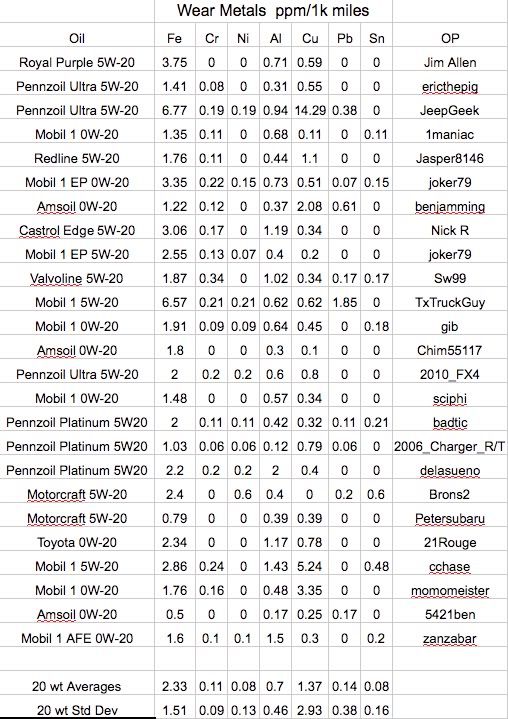It seems to be a popular opinion that 30 weight oils are superior to 20 weight oils and the recommendation of 20 weight oils by many manufacturers is due to CAFE requirements.
I decided to compare the UOAs of 25 of the most recent 20 weight oils to 25 of the most recent 30 weight oils. No attempt was made to cherry pick UOA results. Of course this is a retrospective study, not a controlled study.
In order to compare the results of one analysis to another, I normalized the results to ppm/1K miles. As an example, say a UOA had an iron level of 16 after 4685 miles. To convert this to ppm/1K miles, divide 16 by 4.685 (16/4.685 = 3.42).
Here are the results. First the 30 weight oils:

Now the 20 weight oils:

The 20 weight oils not only showed lower average wear levels as ppm/1K miles
but they also showed lower standard deviations, indicating that the 20 weight oils gave more consistent results.
I decided to compare the UOAs of 25 of the most recent 20 weight oils to 25 of the most recent 30 weight oils. No attempt was made to cherry pick UOA results. Of course this is a retrospective study, not a controlled study.
In order to compare the results of one analysis to another, I normalized the results to ppm/1K miles. As an example, say a UOA had an iron level of 16 after 4685 miles. To convert this to ppm/1K miles, divide 16 by 4.685 (16/4.685 = 3.42).
Here are the results. First the 30 weight oils:

Now the 20 weight oils:

The 20 weight oils not only showed lower average wear levels as ppm/1K miles
but they also showed lower standard deviations, indicating that the 20 weight oils gave more consistent results.


